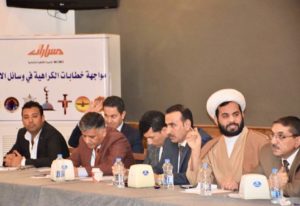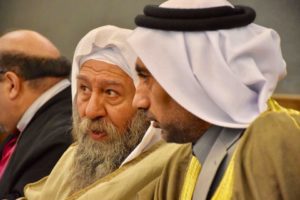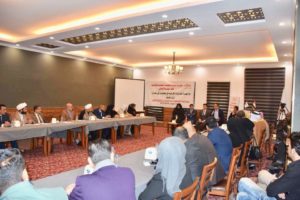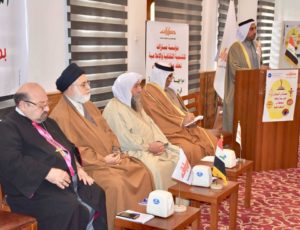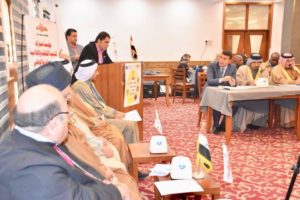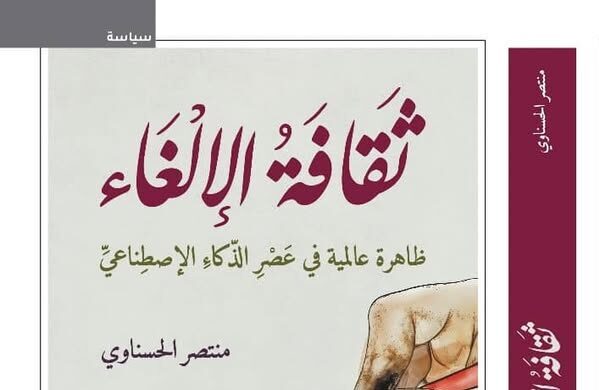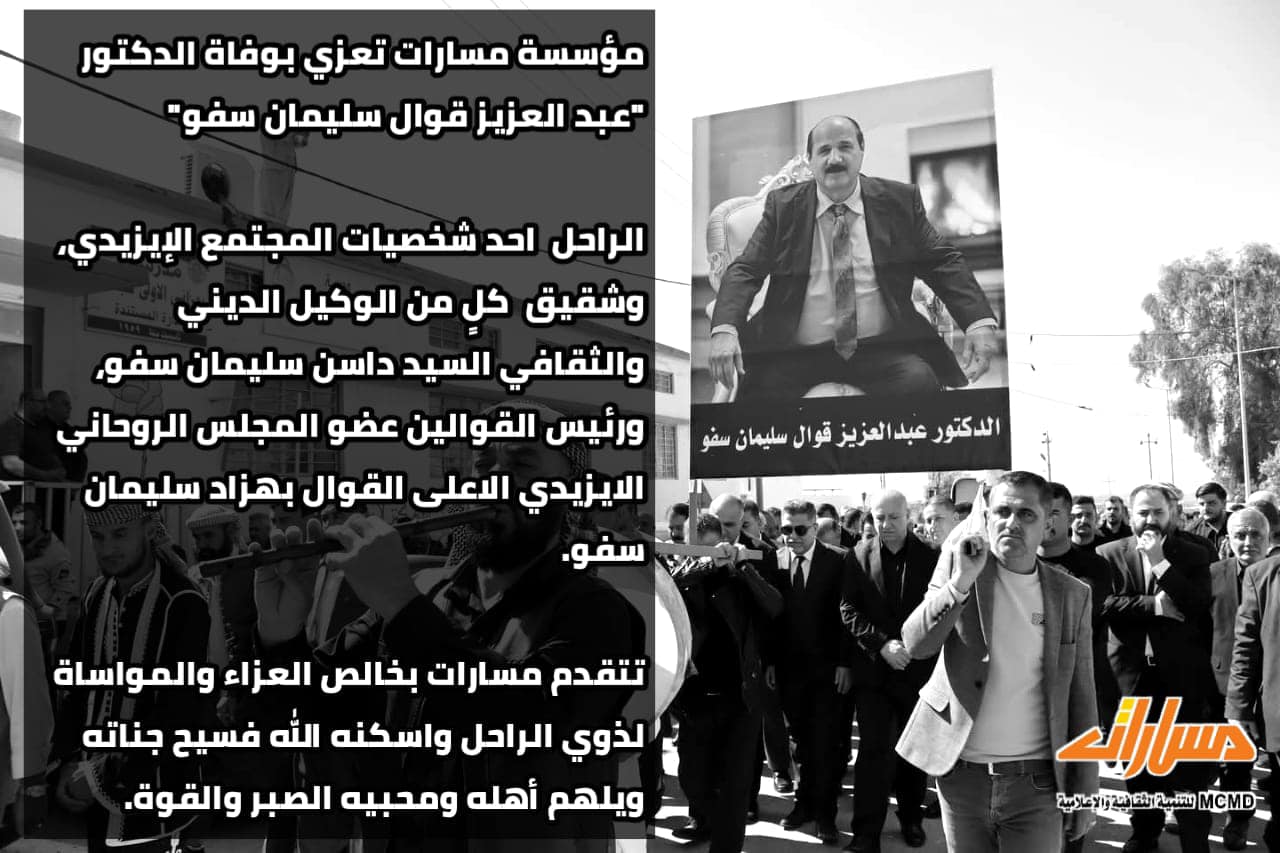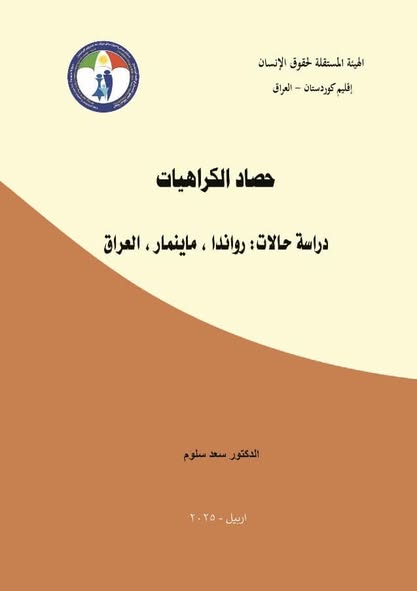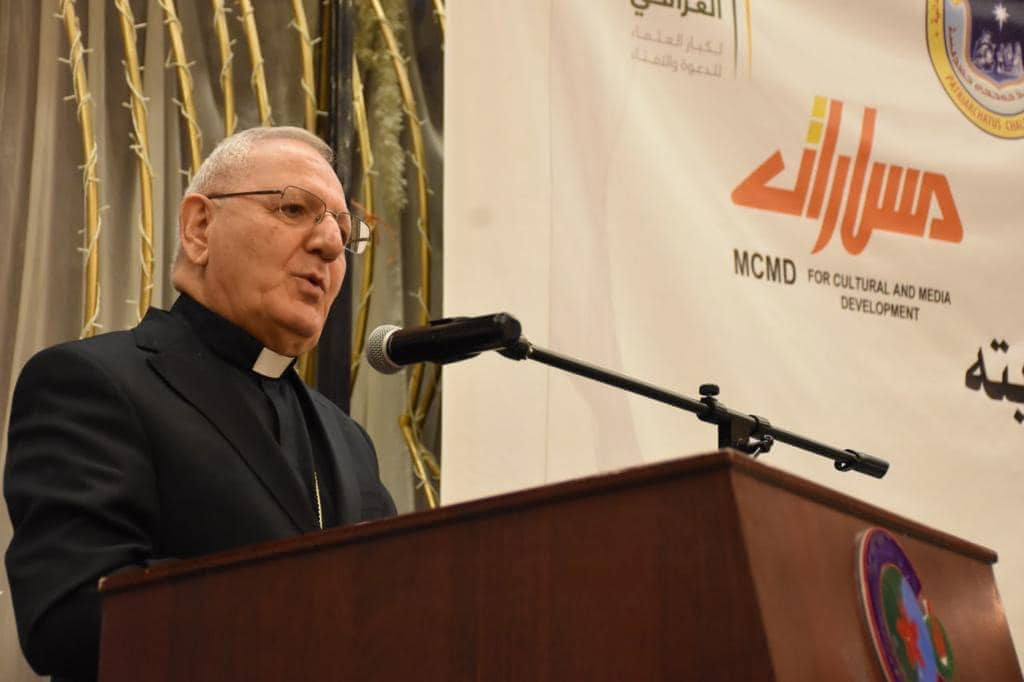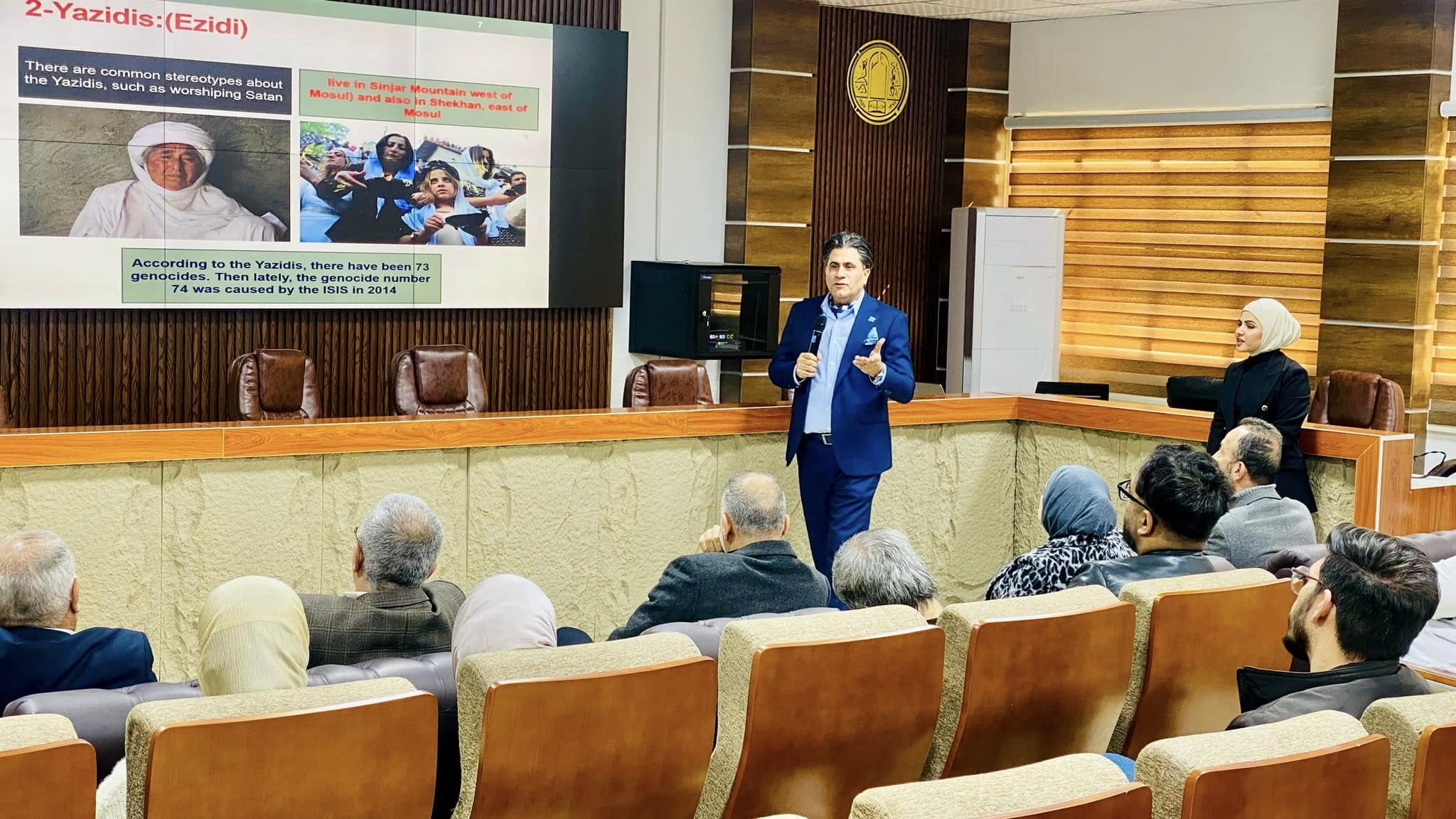After issuing the “Baghdad Declaration to Counter Hate in Iraq and the Middle East,” MSMD forms a committee to follow up, monitor and counter hate speeches, the conference of the Basra Conference on January 20, 2018 was part of a systematic effort to combat hate speech in the context of a long-term strategy.
– The study conducted by the Research Department at MSMD in the first half of 2017 indicates that clerics, media people and politicians compete to lead the hate speech issues in Iraq, where clerics give 43% of hate speech, politicians direct 42% of the same, while the share of media people amounts to 15% of such speeches.
These messages range from 44% posed by politicians, to 36% for religious people, 18% for sectarian issues and 2% of nationalists. In general, 8% of the messages come through TV programs, 43% via daily newspapers and 49% via social media.
– The share of each Iraqi citizen reached 37 daily messages of hatred in the first half of 2017 and rose to 176 messages of hatred per person in the second half after the crisis of the referendum on the independence of the Kurdistan region, which indicates the escalation of hatred rates during political crises
Clearly, public and private media can play a positive role by addressing issues of concern to all segments of society; they can also play a central role in inciting hatred. In addition to the crises that can break out hatred, there is a systematic effort by political elites to exploit hatred by creating stereotypical patterns and prejudiced judgments which consider the other as a devil. Such stereotypes and judgments are being instilled in people’s minds for political mobilization or for finding scapegoats. It could turn into a political paranoia, deliberately established by politicians.
“These violations occur in a political climate of chaos and no accountability, which indicates that there is a big gap in the State in matters of human rights protection”.
Excerpts from (Basra Declaration to Counter Hate Speech)
-To combat the destructive influence of the hate speech, an alliance of different components of ethnic communities and classes convened in Basra to call for establishing a national center to combat hatred.
The Conference, in its sessions, attracted the attention to the need to confront patterns of incitement to hatred that could provoke discrimination, hostility or violence of all forms, with the insistence of individuals, religious leaders, school curricula, mass media, blogs, electronic forums, social media to adopt messages of hatred and incitement.
– The Conference directed 14 sub-plans to be worked out over the next two years, at the top of which is launching of a national center to combat hatred.
Extracts from “Basra Declaration to confront hatred in Iraqi society”
